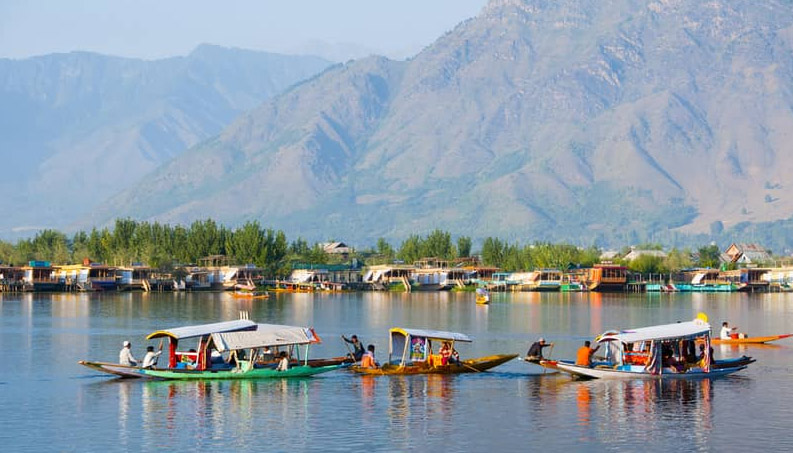SRINAGAR, Sept 26: The Dal and Nigeen lakes here will soon have floating sewage systems that connect the houseboats to treatment plants, protecting the lakes from pollution in the process.
The Lake Conservation and Management Authority (LCMA), which manages and conserves the water bodies and waterways of Jammu and Kashmir, said the project will collect sewage from the houseboats and keep the lakes clean. Both lakes have over the years suffered a great deal of pollution.
The Lake Conservation and Management Authority (LCMA), which looks after, manages, and conserves the water bodies and waterways of J-K, said the project will totally arrest the sewerage from the houseboats and render the lakes clean.
LCMA vice chairman Bashir Ahmad Bhat said that the refuse from houseboats currently go directly into the two lakes. Since the problem of sewage seeping into the lake has persisted, the government has decided to connect the houseboats through a proper sewage system.
Last year, the LCMA started a programme under which they planned to connect all the houseboats in the Dal and Nigeen lakes to the sewerage line, Bhat said.
“The western shore houseboats of Nigeen Lake were connected last year. Then the Dal Lake project got started and currently, we have completed 60 to 70 per cent of the work. We are hopeful that by the end of October, all the houseboats of both lakes will be connected to the sewerage line,” he said.
The houseboats in the lakes are being connected with a sewage treatment plant through a floating sewage system.
“Basically, it is to arrest all the refuse that gets into the lake so as to improve the water quality. The goal (of LCMA) is to restore Dal Lake to its pristine glory,” Bhat said, adding that it was a challenging project as many experiments on collecting sewage have failed in the past. He added that there are 950 houseboats in both lakes.
Tanveer Ahmad, Assistant Executive Engineer, LCMA, said the project was designed to scientifically dispose of sewage from houseboats.
For the Dal Lake part of the project, the water body has been divided into 11 clusters. Each cluster has about 70 houseboats. The work on the project is taken cluster after cluster, he said.
“These clusters will have an individual sump in which the sewage is collected. After the collection, it will be pumped out and will be carried to the shores where it will get treated in a nearby sewage treatment plant,” Ahmad said.
Ahmad said while the project deadline is November 15, the LCMA is trying to complete it before time.
He said houseboat owners would benefit from the project as the lakes would be cleaner which would lead to an increase in tourism.
“We have the support of houseboat owners and houseboat associations. They want this network to develop so that the lake remains clean,” he added.
Houseboat owners have welcomed the move and have thanked the authorities for it.
“We want the sewerage system to be constructed as we live around water, and for many years now, it has been polluted,” said Zahoor Ahmad, a houseboat owner.
He added that if the project is implemented properly “after three to four years, the water of the lakes will be fit for drinking”.
“Due to this sewerage system, our own health and the environment will get better which will be beneficial to everyone,” he said. (Agencies)
Trending Now
E-Paper


